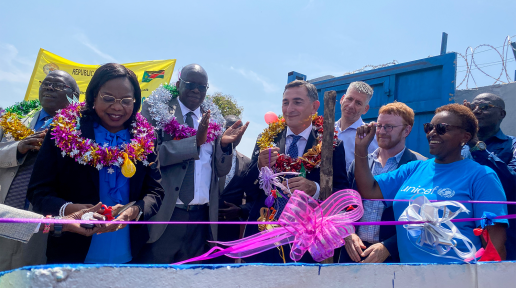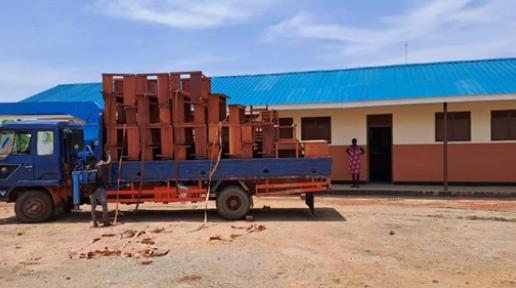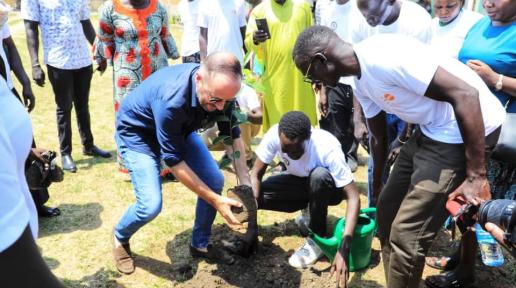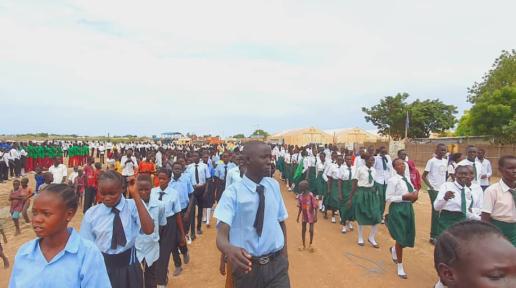Story
11 August 2025
Establishing Trust and Healing through Transitional Justice
Once deeply scarred by conflict and division, Malakal is now rebuilding trust and unity through community-led justice and healing. The Building Peace through inclusive and participatory justice process and mechanisms project, supported by the United Nations Development Program (UNDP) and the United Nations High Commission for Refugees (UNHCR) with funding from the UN Secretary-General’s Peacebuilding Fund (PBF), is leading healing, reconciliation and efforts to rebuild trust among communities in Malakal. The project’s aim is to strengthen inclusive and gender-responsive transitional justice processes in South Sudan. In Malakal specifically, a town that witnessed some of the worst violence during the conflict, the initiative has ignited hope and empowered citizens to confront painful past experiences while charting a more united future. A key success in Malakal has been the inclusive community dialogues and consultations. These sessions brought together diverse groups, youth, women, traditional leaders, survivors, people with disabilities, and people living in the Protection of Civilian (PoC) site (PoC), to openly discuss their experiences and aspirations for justice and reconciliation. For many, it was the first time they had a platform to be heard. The dialogues didn’t just surface grievances; they fostered understanding, restored relationships, and paved the way for localized healing.“Before the training, we didn’t know about our rights or how to claim them. Every problem or misunderstanding was resolved through fighting and revenge. But now I know that the law is there to protect us, everyone is equal before the law, and rights offenders can be dealt with peacefully through the legal system,” said Nyawach Ochan, who participated in the dialogues.The transitional justice trainings focused on Chapter Five of the Revitalized Peace Agreement, covering reconciliation, the Commission for Truth Reconciliation and Healing, Compensations and Reparations Authority and dialogue. Community members participated in awareness-raising sessions, group discussions, and workshops designed to deepen their understanding of transitional justice and peaceful coexistence. To complement face-to-face efforts, the project also leveraged local radio to raise awareness. Radio programs helped disseminate key messages on the rule of law and transitional justice and established community listener groups, broadening the reach of the initiative and reinforcing lessons learned during community sessions.“The project has helped us by providing us with skills to live happily and peacefully with each other in the community” added Gatguon, another community member living in the PoC.Elizabeth, a representative of persons with disabilities living in the Malakal PoC, shared how the training helped her understand her rights and the workings of the legal system. She highlighted that the dialogue and reconciliation activities conducted in the PoC, as part of efforts to promote inclusive and participatory transitional justice, gave her the confidence to share this information with others. “I now feel safe to speak up and help others understand their rights too,” she saidTo ensure sustainability and institutional support, the project partnered with key government ministries and departments. Gender-based violence (GBV) cases, for example, were referred to the Ministry of Gender, Child and Social Welfare, while disputes beyond the reach of dialogue were handled through the formal legal system.Samuel Kur, a member of the local peace committee, emphasized the project’s empowering impact: “The training empowered us to know our rights, learn how to coexist, and understand how to seek justice through peaceful means.”Focus Group Discussions conducted during project monitoring revealed a gradual yet significant change: relationships among Malakal’s communities are improving. Where once individuals from different groups couldn’t interact, or even see each other without tension, people now engage more freely. This shift is attributed to the safe and neutral environments in which project activities were conducted. Initially, groups met separately in their respective areas with support from community facilitators and later came together to engage in joint sessions.Abah, a resident of the Malakal PoC, reflected on the wider impact: “Since the war erupted in 2016, it was difficult for people in the PoC to go into Malakal town. But thanks to the trainings, reconciliation dialogues, and awareness campaigns on the radio, people’s attitudes have changed. Now, at least, people can move between the PoC and the town without as much fear—although more needs to be done to reach all counties across Upper Nile State.”Despite the progress, some challenges remain. “Survivors and victims of violence and conflict are still traumatized and require continuous psychosocial support and counseling services,” said Nyawang, another community participant. Recognizing this, the project has emphasized the need for sustained mental health support and trauma healing initiatives.Through these collective efforts, Malakal is emerging from the shadows of its past. Communities are reconnecting, trust is being rebuilt, and local actors are leading the journey toward peace. The Malakal experience demonstrates that when transitional justice is inclusive, community-driven, and rooted in local realities, it can lay a strong foundation for national healing and sustainable peace.




